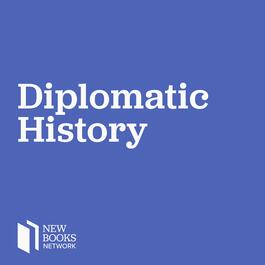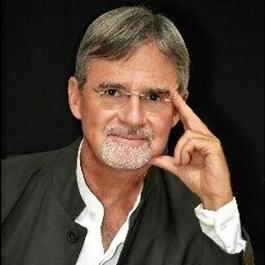
New Books in Diplomatic History
This podcast is a channel on the New Books Network. The New Books Network is an academic audio library dedicated to public education. In each episode you will hear scholars discuss their recently published research with another expert in their field. Discover our 150+ channels and browse our 28,000+ episodes on our website: newbooksnetwork.com Subscribe to our free weekly Substack newsletter to get informative, engaging content straight to your inbox: https://newbooksnetwork.substack.com/ Follow us on Instagram and Bluesky to learn about more our latest interviews: @newbooksnetwork
Show episodes

Yanqiu Zheng, "In Search of Admiration and Respect: Chinese Cultural Diplomacy in the United States, 1875–1974" (U Michigan Press, 2024)
What does it mean for a country to seek admiration — and what kinds of institutions try to make that admiration possible? Yanqiu Zheng’s In Search of Admiration and Respect: Chinese Cultural Diplomacy in the United States, 1875–1974 (U Michigan Press, 2024) traces how China attempted to reshape its international image
Philip Nash's book Clare Boothe Luce: American Renaissance Woman (Routledge, 2022) is a concise and highly readable political biography that examines the life of one of the most accomplished American women of the 20th century. Wife and mother, author, editor, playwright, political activist, war journalist, Congresswoma

Eric H. Cline, "Love, War, and Diplomacy: The Discovery of the Amarna Letters and the Bronze Age World They Revealed" (Princeton UP, 2025)
From the acclaimed author of 1177 B.C., a spellbinding account of the archaeological find that opened a window onto the vibrant diplomatic world of the ancient Near East In 1887, an Egyptian woman made an astonishing discovery among the ruins of the heretic king Akhenaten’s capital city, a site now known as Amarna. She

Ronald Angelo Johnson, "Entangled Alliances: Racialized Freedom and Atlantic Diplomacy During the American Revolution" (Cornell UP, 2025)
Entangled Alliances is a reinterpretation of the American Revolution through analysis of diplomacy in the emerging United States during decades of hemispheric transformation. Ronald Angelo Johnson brings to light the fascinating story of American patriots and rebels from Saint-Domingue (later Haiti) allying against Eur

Aaron Magid, "The Most American King: Abdullah of Jordan" (Universal Publishers, 2025)
The Most American King: Abdullah of Jordan (Universal Publishers, 2025) is the first comprehensive biography on Jordan’s King Abdullah. Drawing on interviews with over 100 individuals, including Abdullah's classmates, former Jordanian ministers, and CIA directors, The Most American King offers a thorough account of thi

Kalathmika Natarajan, "Coolie Migrants, Indian Diplomacy: Caste, Class and Indenture Abroad, 1914-67" (Oxford UP, 2026)
Over the centuries, millions of migrant labourers sailed from the Indian subcontinent, across the Bay of Bengal and Indian Ocean, to shape what is now the world’s largest diaspora. Coolie Migrants, Indian Diplomacy: Caste, Class and Indenture Abroad, 1914-67 (Hearst, 2025 and Oxford UP, 2026) recovers the histories and


